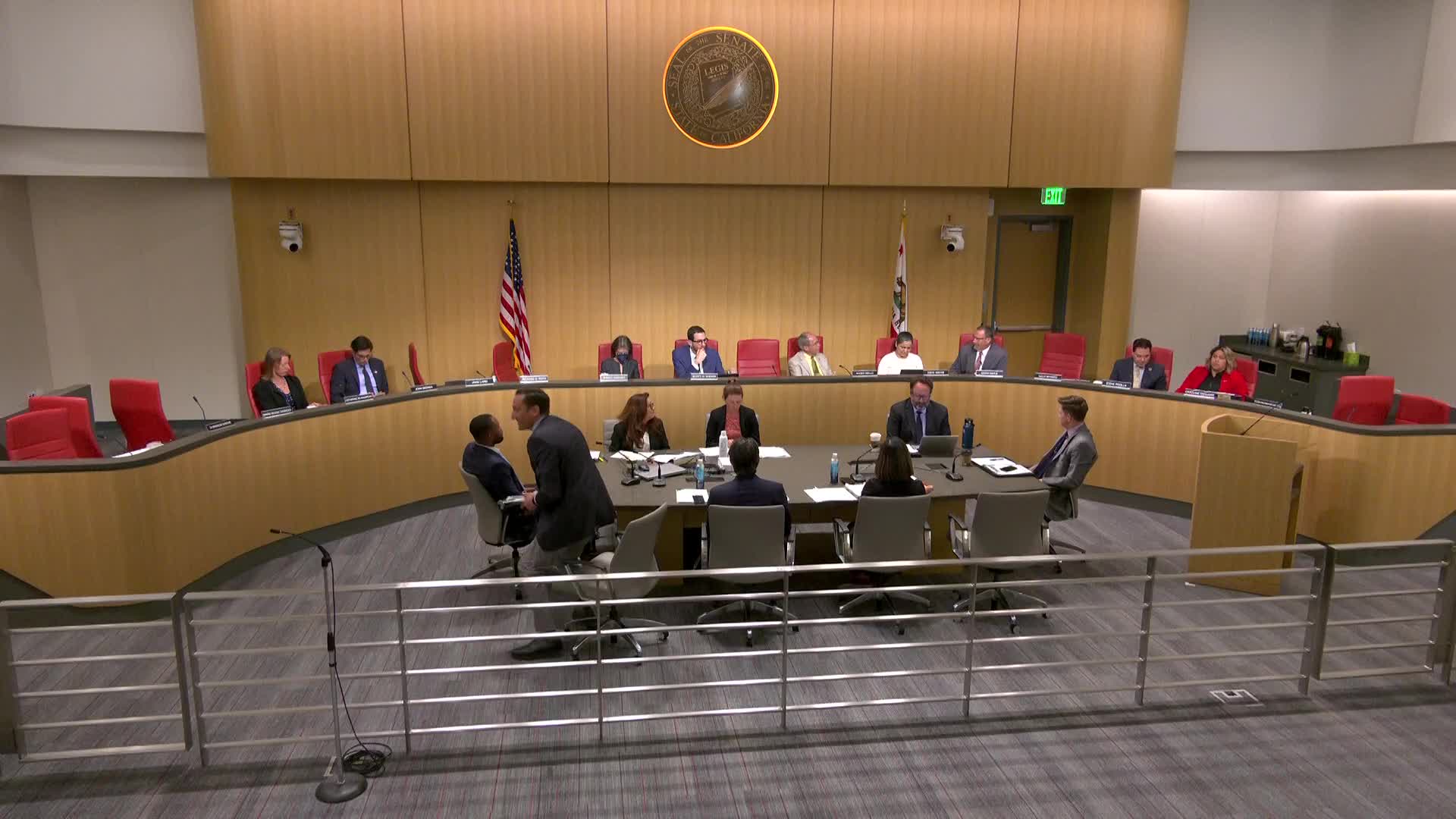California Faces Budget Crisis Amid Economic Boom
June 12, 2024 | Budget and Fiscal Review, Subcommittees of Senate Standing Committees, California State Senate, Senate, Legislative, California

This article was created by AI summarizing key points discussed. AI makes mistakes, so for full details and context, please refer to the video of the full meeting. Please report any errors so we can fix them. Report an error »

In a recent government meeting, California officials discussed the state's unexpected budget deficit, which has raised concerns amid a booming national economy and record-high stock market performance. The meeting highlighted a stark contrast between California's financial struggles and the fiscal health of other states like Nevada and Texas.
Officials noted that California's budget surplus, which once stood at $100 billion, has dwindled to an estimated deficit of $50 to $55 billion. This dramatic shift has prompted questions about the state's tax structure and revenue forecasting. The Department of Finance explained that the surplus was largely fueled by a spike in revenues during the pandemic, driven by federal aid and a strong stock market. However, as revenues began to normalize, the state faced challenges in accurately forecasting future income due to delayed tax receipts.
The conversation also touched on the impact of high-income earners potentially leaving California, with some officials acknowledging that while there is a notable churn of residents, the state's economy remains resilient. Despite concerns over individuals like Elon Musk relocating, officials emphasized that California still retains a significant share of major technology companies and venture capital funding.
Additionally, the meeting addressed the potential jeopardy of a $1.1 billion federal loan tied to the Diablo Canyon nuclear power plant. The state’s failure to fulfill a $400 million commitment could threaten this funding, raising alarms about the financial implications for Pacific Gas and Electric (PG&E) and the state's energy future.
As California navigates these fiscal challenges, officials underscored the importance of transparency and collaboration in budget discussions, particularly as they prepare for negotiations that will shape the state's financial landscape moving forward.
Officials noted that California's budget surplus, which once stood at $100 billion, has dwindled to an estimated deficit of $50 to $55 billion. This dramatic shift has prompted questions about the state's tax structure and revenue forecasting. The Department of Finance explained that the surplus was largely fueled by a spike in revenues during the pandemic, driven by federal aid and a strong stock market. However, as revenues began to normalize, the state faced challenges in accurately forecasting future income due to delayed tax receipts.
The conversation also touched on the impact of high-income earners potentially leaving California, with some officials acknowledging that while there is a notable churn of residents, the state's economy remains resilient. Despite concerns over individuals like Elon Musk relocating, officials emphasized that California still retains a significant share of major technology companies and venture capital funding.
Additionally, the meeting addressed the potential jeopardy of a $1.1 billion federal loan tied to the Diablo Canyon nuclear power plant. The state’s failure to fulfill a $400 million commitment could threaten this funding, raising alarms about the financial implications for Pacific Gas and Electric (PG&E) and the state's energy future.
As California navigates these fiscal challenges, officials underscored the importance of transparency and collaboration in budget discussions, particularly as they prepare for negotiations that will shape the state's financial landscape moving forward.
View full meeting
This article is based on a recent meeting—watch the full video and explore the complete transcript for deeper insights into the discussion.
View full meeting
